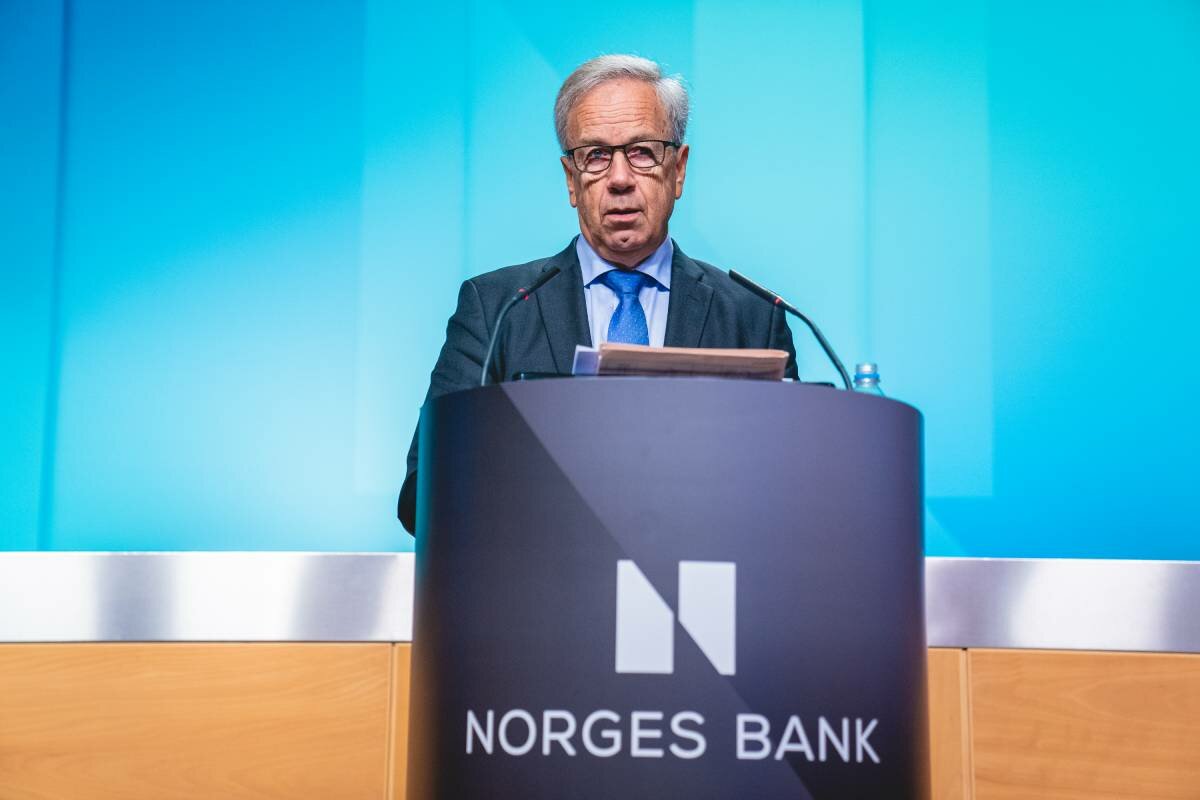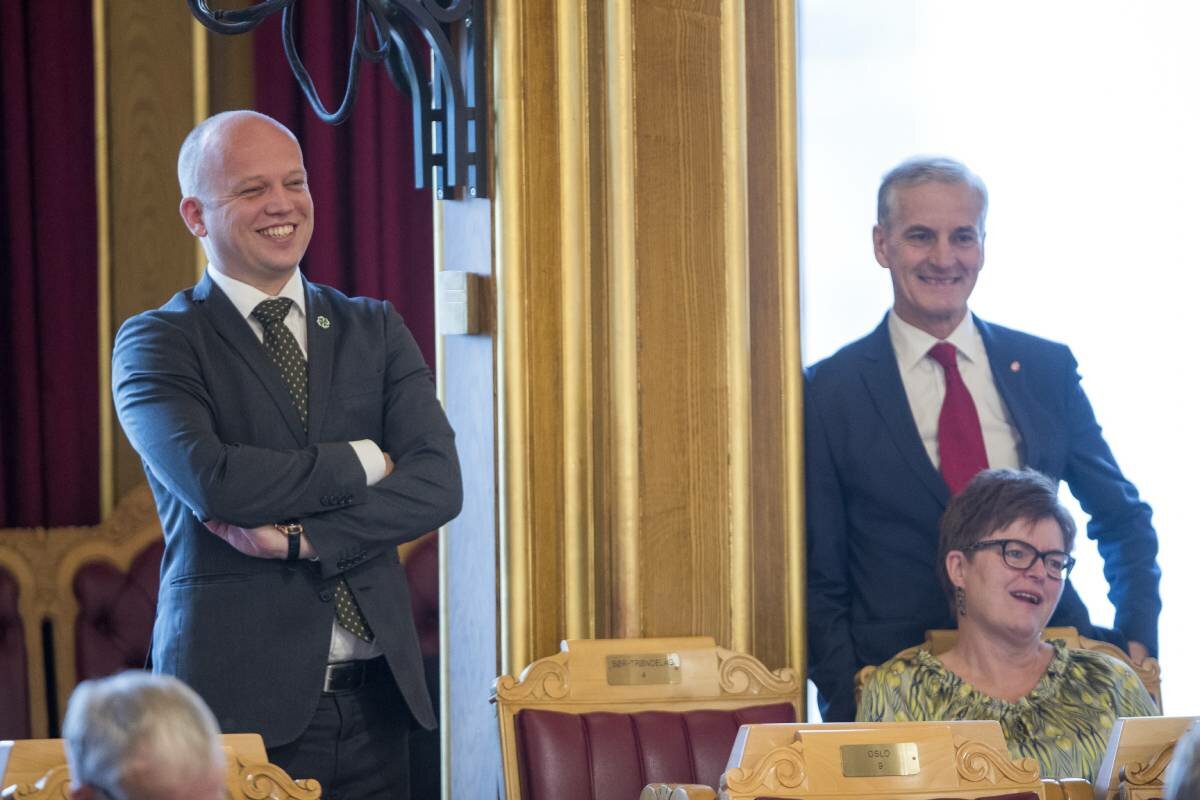The admission by former Prime Minister and NATO head honcho, Jens Stoltenberg, that he had been contacted to apply for the role of the Governor of Norges Bank was met with derision by many. Would his nomination go against the politically independent nature of the job? Could he separate his personal relationships with many in government from his professional duties? With details emerging about his nomination shortly after last year’s election, is this just a “back door” power grab by Labor or just another example of the corrupting influence of politicians helping (ex) politicians?
Norges Bank Governor has been politically neutral and independent
When Øystein Olsen, current head of Norges Bank (the central bank of Norway) announced his decision, last August, to retire this February, it was seen as a minor news story. The comings and goings of the staff of Norges Bank have trouble gaining front-page coverage. The governor, as head of the central bank of Norway, is responsible for not only broad financial and price stability but also oversees the management of Norway’s huge sovereign wealth fund. The governor has, in recent years, been appointed on a strict line of being politically independent and neutral, free from any governmental privilege or pressure.
On December 14, however, the lack of attention that Olsen’s departure received was replaced by a tsunami of interest as Jens Stoltenberg, former Prime Minister, announced his intention to apply for the top job. Much of the interest, and criticism, was centered on a key point: could a former Labor Prime Minister and mentor to many in government (not least the current prime minister) truly be considered politically free from any political influence or intrigue? Could a man who casts such a large shadow over the history of the Labor Party since the turn of the millennium be able to separate his past friendships, allegiances, and proteges to coldly conduct activities, and make decisions, for the good of the Norwegian economy?
Casting aside the debate for a moment, one thing is evident about Stoltenberg: he does indeed have a broad range of political, financial, and governmental experience to draw upon in a career spanning more than two decades.
Stoltenberg’s stratospheric rise from party star to Prime Minister
Bursting onto the scene as a wunderkind in the Brundtland government of the mid-1990s he was then promoted to head the Finance Ministry under her successor,Thorbjørn Jagaland. His rising star turned into a supernova as he then became first the leader of the Labor Party and then Norway’s youngest ever Prime Minister from 2000 to 2001. This experience was short-lived, however, as he then lead Labor to the catastrophic 2001 election. Whilst many thought this had secured everlasting infamy in the annals of the Labor Party history, he showed his political nouse and expertise by defeating his successor Jagaland for party leadership and then winning the 2005 election.
Serving two consecutive terms as prime minister, from 2005 to 2013, he led a “red-green coalition” governing along with the Socialist Left Party (SV) and the Center Party (SP). He led a progressive cabinet and government, seeing Norway punch above its weight in international affairs and global health. His leadership and compassion following the July 22, 2011 attacks healed a nation and was praised worldwide, from Washington to Wellington. Since 2014 he has been the Secretary-General for NATO in an era of increasing antagonism, to the West, from authoritarian regimes.

Could Stoltenberg stall Banche’s progression?
Stoltenberg can surely draw on his vast experience in governmental and international organizations and would no doubt make a capable governor. Yet just because he can, doesn’t necessarily mean he should. First and foremost, there is one huge issue that needs to be dealt with straight away: sexism. Before Stoltenberg announced that he had been contacted to apply for the job, many had assumed that when Olsen would step down there was really only one name on any list of potential successors. This was the name of his deputy, Ida Wolden Banche.
Bance has had some sort of role with the bank for almost two and a half decades and few would doubt her credentials and practical experience. She essentially has been a ‘governor in waiting’ as she has headed both the Financial Stability and Monetary Stability departments before her role as Norges Bank number two. So one would assume that those in Norges Bank, and the government more broadly, have seen her rise in the ranks yet, all of a sudden, her career path could potentially be stalled by Stoltenberg’s nomination.
What sort of message would Stoltenberg’s nomination send out to the hard-working career woman in this country? Knuckle down, study hard, work your way up an organization only for you to have your dream job blocked by a man whose friends are in positions of power? Maybe it is more who you know rather than what you know…
Stoltenberg’s nomination would keep the “glass ceiling” at Norges Bank intact
Though Stoltenberg does have some financial bona fides (he was the Minister of Finance, after all) would that necessarily be better than having, as governor, a woman who has progressed from research assistant to deputy governor of Norges Bank?
Her academic background (a Masters in Economics from the London School of Economics) and career and knowledge of the inner workings of Norges Bank should make her nomination a moot point. If she was a man, however, would Stoltenberg’s nomination be taken less seriously? Is part of Stoltenberg’s nomination the fact that those in power have, once again, tried to lure a man to do a job that a woman is obviously far more qualified for?
There has never been a female governor in the 205-year history of Norges Bank and surely there has never been a better chance to have one now seeing as though the most qualified candidate is Banche. Should Stoltenberg be nominated, the glass ceiling at Norges Bank will enter its 206th year of remaining unbroken.

Stoltenberg’s friends in high places…
There will be, of course, accusations of ‘cronyism’ leveled at those in the government for seeking out Stoltenberg for the nomination. When announcing his decision in December, he did mention the small detail of the fact that the Ministry of Finance had indeed contacted him and told him to run for the job.
This was a thoroughly unprecedented move because the governor should, in theory at least, be considered apolitical and independent. Having a current government actively pursue its old mentor for this job definitely blurs the lines of division of power.
Stoltenberg was not only a mentor to the current Prime Minister, Jonas Gahr Støre, but his political philosophy is still very much at the heart of the Labor Party. Some may well argue that Støre’s election win was, in part, due to the fact that he was (and evidently still is) so closely associated with Stoltenberg, a sort of Stoltenberg 2.0., with a French-language add on.
A very civilised dinner discussion…
Fresh details have emerged about how, before the 2021 election, Støre had discussed the candidacy of Stoltenberg, at a dinner with several key political movers and shakers.
Now, Støre claims that he said if he got elected as Prime Minister, that would automatically rule out his participation in any further discussions due to a conflict of interest. However, the Ministry of Finance did actually contact Stoltenberg to throw his hat into the ring.
Surely, between this dinner party and Stoltenberg’s nomination, Støre must have had a further discussion about Stoltenberg’s candidacy? Or are we to believe, as the Prime Minister would have us believe, that apparently, his Ministry of Finance came up with Stoltenberg’s name without the consent or knowledge of the Prime Minister? Støre either knew and lied or isn’t briefed by his own Ministry of Finance. Either way – it looks bad.
Whether Stoltenberg will actually end up running the central bank of Norway remains to be seen. Yet given the numerous scandals plaguing Norway’s political class of late, this saga shows that even the once “golden boy” of the Labor Party may have lost some of his shine.
The opinions expressed are those of the author and are not held by Norway Today unless specifically stated.
About the author:
Jonathan is a lover of the written word. He believes the best way to combat this polarization of news and politics, in our time, is by having a balanced view. Both sides of the story are equally important. He also enjoys traveling and live music.
Source: #Norway Today / #NorwayTodayNews
Do you have a news tip for Norway Today? We want to hear it. Get in touch at [email protected]


Be the first to comment on "Opinion: If Stoltenberg gets Norges Bank’s top job, expect to see some blurred division of power in Norway"